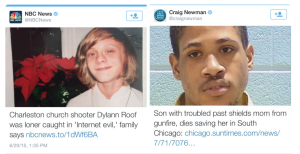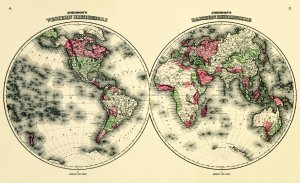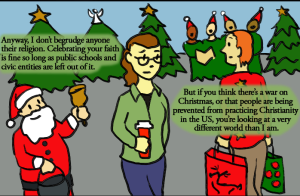Originally published in The Huffington Post and republished here with the author’s permission.
“No hablo español.”
I never learned how to say it without feeling embarrassed.
Maybe I was just being sensitive, but I swear people would look at me differently when I told them, as if they had just offended me.
“Oops,” the look said. “Sorry. I thought you were Latino.”
And I was. And I am. But I didn’t have the words to tell them.
I couldn’t speak Spanish – and it was a wall that separated me from my culture for most of my life.
Much has been written about what it means to be Latino. I haven’t read it all, but I’ve read a lot, and I still haven’t found a consensus on the definitive “Latino experience.” Or, at least, I haven’t found one that I feel comfortable enough to claim.
What I do know is that, for me, words like Chicano, Hispanic, and Mexican-American are often thrown around. I know that we are every race and color. And I know that, for many of us, “diaspora” is an important part of our identities.
For my family, “diaspora” looked like moving to rural Oklahoma where we were the only Latinos around.
My abuela told me she dropped out of elementary school to pick cotton because she couldn’t speak English. When I asked my mother if that’s why my abuela didn’t raise her to speak Spanish, she shrugged and said, “I didn’t have anyone to speak to.”
That’s how it is for a lot of Latinos in the United States. Even if we were raised in the culture, even if we are first-generation or second-generation, we don’t speak Spanish.
And it leaves some of us feeling like we aren’t “Latino enough.”
I grew up with that feeling.
That feeling is what made me take a job at a local Mexican restaurant where my coworkers from Iguala and Michoacán taught me slang. That feeling made me pay extra attention in Spanish class, made me spend hours reading Mexican news articles, and made me seek out friends who would only speak me to in Spanish.
But the thing is, when I finally did learn Spanish, I arrived at a conclusion I didn’t expect: I wasn’t more Latino for knowing it.
The wall between my culture and me, I discovered, was largely of my own design. I felt like I wasn’t Latino enough. I was insecure, and I allowed that insecurity to color my experience and define me.
To be sure, there are a lot of benefits to be gleaned from speaking another language.
In corporate America, for example, knowing Spanish is pretty much an expected draw to hiring Latinos, something that supposedly gives us worth in an environment that is less likely to hire us.
On a cultural level, we should all be learning more languages, and for Latinos, knowing Spanish does make it easier to connect with Latino media and certain elements of the community.
But as for being Latino, as for Spanish being a prerequisite to Latino identity, I say: mierda.
My abuela knew Spanish. The obstacles she encountered in the United States paired with living in a community where no one spoke the language meant my mother lost that knowledge. I am a product of that. That’s diaspora, and I’m not ashamed of it.
Because speaking Spanish is not what makes me Latino.
The way I experience the world is what makes me Latino. My values – an emphasis on family, a commitment to social justice for my community – are what make me Latino.
It is inherent in me. It is effortless. It is not earned or awarded, given or taken. It just is.
So to the Latinos who don’t speak Spanish, to the Latinos who can’t roll their R’s or have to smile and nod when their tía starts rattling off words they don’t understand: Don’t worry.
You are Latino enough.
[do_widget id=’text-101′]
John Paul Brammer is a writer, blogger, and activist from Oklahoma. His work has been featured in This Land Press and The Advocate. He frequently writes on the topics of LGBT activism and his Mexican American background.
Search our 3000+ articles!
Read our articles about:
Our online racial justice training
Used by hundreds of universities, non-profits, and businesses.
Click to learn more





















